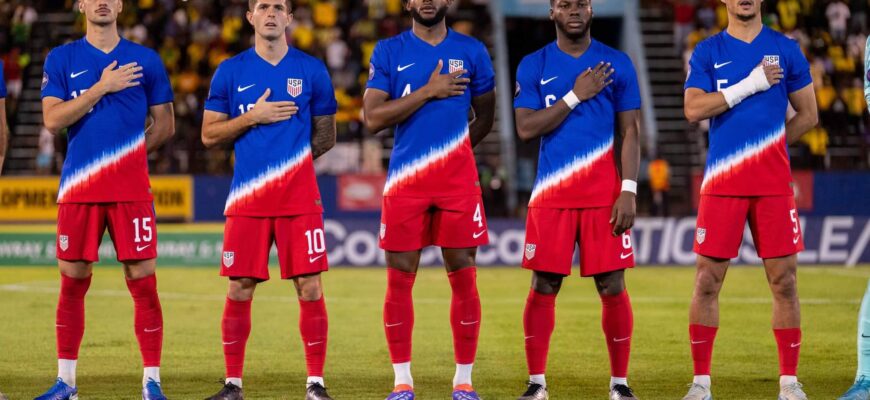The air around the U.S. Men`s National Team (USMNT) camp is thick with a familiar tension, not unlike the humidity before a summer thunderstorm. With the World Cup looming just nine months away, a recent 2-0 friendly defeat to South Korea has ignited a familiar blaze of public scrutiny. Head Coach Mauricio Pochettino, a man often found pacing the technical area with a thoughtful intensity, now faces questions not just about results, but about the very foundations of his squad selection and preparatory strategy.
The Scoreboard Speaks, But What`s the Story?
On paper, the optics aren`t flattering. Seven losses in seventeen games within a year of taking the helm is hardly the bulletproof resume critics demand. The South Korea match, where the USMNT outshot their opponents 17-5 yet still fell short, painted a picture of a team struggling to connect the dots—a “disjointed” performance, as many observed. The immediate targets for this discontent? Defensive vulnerabilities, highlighted by Tristan Blackmon`s debut and the curious absence of mainstay Chris Richards from the starting lineup.
Yet, to Pochettino, the pitch-side commentary and punditry often miss the forest for the trees, or perhaps, the tactical whiteboard for the immediate scoreline. His response, delivered with a characteristic blend of frankness and strategic intent, was swift and to the point. When asked about the critical chatter, he retorted with a directness rarely seen outside the locker room:
“The important thing is to apply the common sense. If people want to sometimes talk about bullshit, they can talk about bullshit.”
A declaration, perhaps, that signals not disdain for criticism itself, but for what he perceives as a lack of understanding regarding the intricate machinery of international football management.
The Delicate Art of Player Management: More Than Just Kicking a Ball
Pochettino`s defense is not merely a verbal counter-attack; it`s a meticulously outlined strategy, a gambit played on the chessboard of player health, club obligations, and national team aspirations.
Take the case of Chris Richards, a player integral to the USMNT`s defensive structure. His benching against South Korea raised eyebrows. Pochettino revealed Richards arrived with a minor “issue,” a pre-existing condition that made a full game a calculated risk. For a coach whose gaze is firmly fixed on a World Cup run, risking a key player for a friendly is, quite simply, an unnecessary gamble.
Then there`s Malik Tillman, a breakout star from the Concacaf Gold Cup, now navigating life at Bayer Leverkusen. Tillman picked up an injury during pre-season, sidelining him from a Bundesliga opener. To call him into the national squad immediately, Pochettino argued, would have been counterproductive, potentially setting back his recovery and, by extension, his readiness for the biggest stage.
“Which is the benefit – to bring [him] here and maybe set [him] back because he`s not ready or rather to provide him the two weeks, working really well in the team and start again and after to build his condition with regular playing? … if you call and take a risk and it`s a setback and [he`s] injured and maybe it`s one, two, three months with no play, it`s a big risk for the World Cup.”
This highlights a critical, often unseen challenge for national team coaches: the September international break. It falls barely a few weeks into the European club season, a period when players are either just returning from pre-season, settling into new clubs, or still regaining match fitness. Expecting peak performance and perfect cohesion is, according to Pochettino, a fundamentally flawed expectation.
Expanding the Arsenal: The Long Game of Squad Depth
Beyond individual player welfare, Pochettino emphasized the strategic imperative of expanding the player pool. Handing opportunities to “inexperienced” players like Tristan Blackmon in friendlies is not a sign of indifference to results, but a deliberate act of reconnaissance. The World Cup, he stressed, is no place for experiments.
“We need to have quite [a] roster and players that we need to know and give the possibility to play… [At] the World Cup, it`s not a moment to make tests or to give the possibility to get experience. That is why you cannot be surprised.”
This approach, he believes, fosters a robust competitive environment, ensuring that no player, however established, can rest on their laurels. The message is clear: depth creates pressure, and pressure forges excellence. Tillman, for instance, needs to know “there`s another guy in behind pushing, okay?”
Unity Over Acrimony: A Call for Collective Purpose
Pochettino views the March losses in the Concacaf Nations League Finals as a crucial “wake-up call.” It was a moment, he suggests, that refocused the team on the collective rather than individual ambitions. “The most important thing is the national team, is the federation and this is more important than any single name.”
His final plea is for unity. External criticism, he contends, can undermine the very fabric of national team morale. While constructive critique is welcome, the “criticism for criticism`s sake” does not harm him personally, but rather “damages your country and damaging your players.”
It`s a familiar refrain from coaches under pressure: rally around the flag, trust the process. But in Pochettino`s narrative, it`s also a logical extension of his tactical philosophy. Building a cohesive unit capable of challenging on the world stage requires not just technical skill and physical prowess, but a collective mindset unburdened by external static.
The Unfolding Narrative: Trusting the Process
As the World Cup countdown continues, the USMNT finds itself at a pivotal juncture. Mauricio Pochettino`s strategy is clear: prioritize player health, judiciously expand the roster, and build a unified team chemistry, even if it means weathering a few storms—and a few “bullshit” comments—along the way. Whether this calculated approach will yield the desired results on the grandest stage remains the ultimate question, but for now, the coach is steadfast in his conviction, urging patience and, perhaps, a touch more “common sense” from the bleachers.









